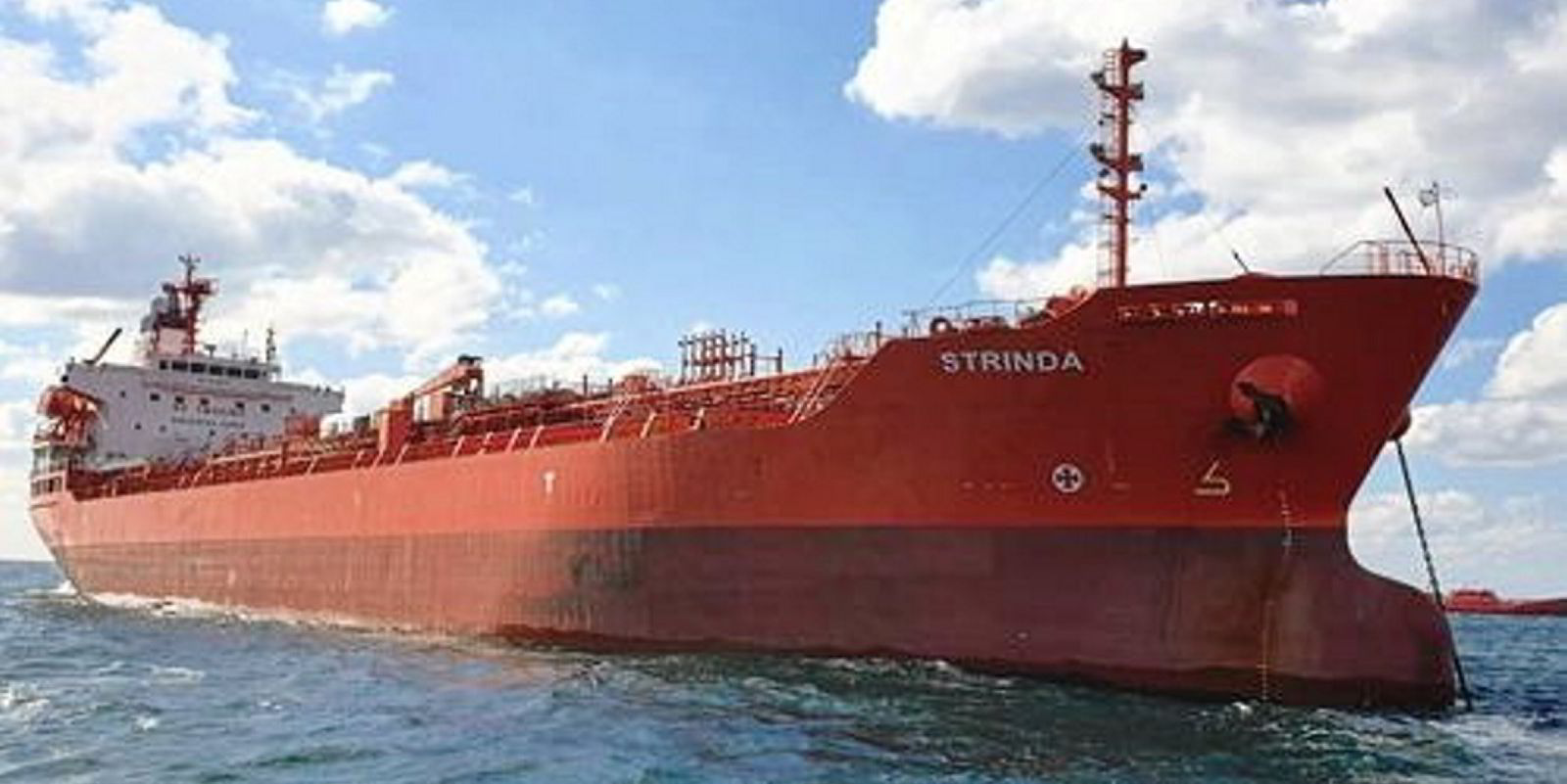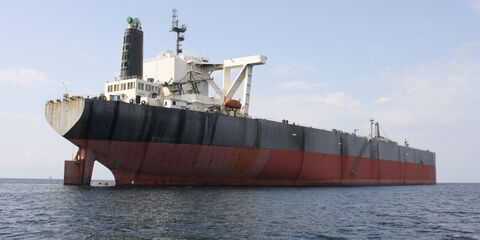A Norwegian-owned vessel came under fire in the Red Sea off Yemen on Monday, two days after the Houthi regime threatened to widen its attacks to non-Israeli ships.
Shipowners and governments roundly condemned the attack, pushing for increased international cooperation to help ensure unimpeded sea traffic in one of the world's busiest and most fragile sea lanes.
A Houthi anti-ship cruise missile struck the 20,000-dwt Strinda (built 2006) around 1600 Eastern Standard Time (2100 GMT) late on 11 December near the Bab El-Mandeb, 15 nautical miles west of Mokha, Yemen.
The vessel is a Norwegian-flagged chemical tanker in the ownership of J Ludwig Mowinckels Rederi.
According to the Bergen-based company, the Strinda caught fire but none of its all-Indian crew suffered any injuries and they managed to put out the blaze.
The missile was not the only projectile threatening the vessel.
According to a French defence ministry statement issued later on Tuesday, a French frigate, the Languedoc, intercepted and shot down a drone that was “directly menacing” the Strinda.
The Languedoc then sailed alongside the Norwegian tanker to prevent any attempt to detour it. The USS Mason, an American destroyer, also responded to the Strinda’s mayday call and rushed to assist.
Following the incident, the Strinda proceeded to “a safe port,” which the French statement suggests is somewhere in the Gulf of Aden.
Yemen’s Houthi rebels confirmed the missile attack, claiming the Strinda had ignored their warnings to change course.
“The Yemeni Armed Forces… did not resort to targeting the Norwegian ship … until crew refused to respond to warning,” the group’s spokesman, Brigadier General Yahya Saree, said in a tweet.
Saree said the attack was the first under a new policy announced by the Houthis on Saturday, to attack ships of any nationality off the Yemen coast they believed to be heading towards Israel.
The rebels, who control large swathes of Yemen, had so far been targeting or hijacking only ships thought to be controlled by Israelis.
Saree claimed that many ships have already heeded Houthi warnings over the past 48 hours and changed course.
Coalition forming?
In its statement, J Ludwig Mowinckels Rederi did not mention having received any warnings to change the Strinda's course.
According to the initial information provided by the company, the ship was not heading to Israel at all but was instead en route to Italy from Malaysia with a feedstock of biofuel.
The Signal Ocean data platform partly corroborates that information, showing the Strinda as underway from Panjang in Indonesia to Malta with a load of palm oil.
A screen grab taken by security company Ambrey Analytics, however, showed the ship on the arrivals list of Ashdod, an Israeli port.
The Port of Ashdod’s website was subsequently blocked.
In an updated statement later on Tuesday, J Ludwig Mowinckels acknowledged that the Strinda was tentatively nominated by her charterers for a cargo out of Ashdod in January.
Houthi spokesman Brigadier General Yahya Saree said the attack was meant to pressure Israel and the international community to provide humanitarian assistance to Gaza, a Palestinian territory under fierce Israeli attacks.
As the Strinda incident represents a drastic escalation in the Houthi campaign, the IMO, the Norwegian government and the country's shipowners expressed grave concerns and urged international coordination to counter the rebels.
“This is a serious and unacceptable attack”, said Harald Solberg, chief executive officer of the Norwegian Shipowners' Association, urging Norwegian authorities and the international community to take the situation “very seriously”.
Norwegian state secretary Eivind Vad Petersson described the Houthis action as an “arbitrary attack”.
Norway, a NATO parter of the US, France and the UK, is working “closely with allies — both politically and militarily — to ensure free and safe navigation at sea,” Petersson added.
About 20,000 ships pass through the region each year and ensuring that the world's most important supply lines are kept open “must be a central priority”, said Solberg.
The IMO's outgoing secretary general Kitack Lim joined the chorus of condemnation.
“I invite member states to work together to ensure unhindered and safe global navigation, everywhere,” Lim said in a statement.





